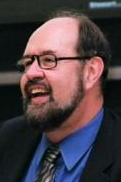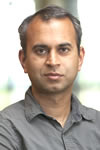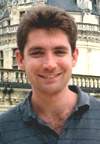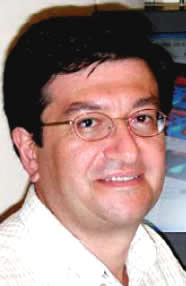
http://www.umn.edu/urelate
612-624-6868
Fall 2015 CCS Faculty Member Courses
 LING 8920 Topics in Language and Cognition (3 credits)
LING 8920 Topics in Language and Cognition (3 credits)
12:45 to 1:45 Tuesdays & Thursdays
Elliott Hall S204
Jeanette Gundel, Linguistics
Ling 8920 examines topics in language and cognition from a linguistic perspective. Advances in theoretical linguistics have made important contributions to our understanding of what we know when we know a language; but the precise manner in which linguistic knowledge interacts with other aspects of cognition when it is put to use in communication is still not well understood. The 2015 offering of Ling 8920 will examine this interaction. Questions to be addressed include the following:
- How is it that we can understand what other people intend to communicate when they use language, given that the intended meaning is almost always grossly underspecified by the linguistic form alone?
- How does 'context' contribute to the resolution of ambiguities and indeterminacies, and what is context from a cognitive perspective?
In addressing these questions, we will also examine the disruption (and non-disruption) of linguistic communication in individuals diagnosed with autism, Alzheimer's disease and schizophrenia. Other topics may also be covered depending on student interest.The class meets an elective requirement for a degree in Linguistics as well as for the Cognitive Science graduate major or minor. Combined lecture and seminar discussion. Weekly reading assignments and comments on readings; final paper/project. Intended audience: graduate students and advanced undergraduates with an interest in language and cognition.
 EPSY 8114 Conceptual Change (3 credits)
EPSY 8114 Conceptual Change (3 credits)
2:30 to 5:10 Wednesdays
Peik Hall 28
Panayiota (Pani) Kendeou, Educational Psychology
Learning often involves the revision of prior knowledge at the level of systems, at the level of individual concepts, and of course at the level of individual beliefs. This type of learning is known as conceptual change. In this seminar, we will focus on the discussion of current research in the area of conceptual change learning with the aim to advance our understanding of the underlying cognitive processes involved in knowledge revision and their implications for pedagogy and assessment.
Main topics include current theories of conceptual change learning, processes and mechanisms of change, conceptual change in different domains (e.g., science, math, physics), influences of learner characteristics (e.g., prior knowledge, epistemological beliefs, motivation, engagement), instructional approaches for conceptual change, and challenges in conceptual change research. Graduate students are invited to register for the course, regardless of disciplinary background.

SLHS 5900 Language Variation and Change: Applied Issues in Speech-Language Pathology and Audiology (1- 4 credits)
9:00 to 12:00 Wednesdays
Shevlin Hall 125
Benjamin Munson, Speech-Language-Hearing Sciences
This course will cover three issues in the study of phonological variation and change that are of particular relevance to the disciplines of audiology and speech-language pathology. The course is divided into three modules. In each module, we will read and discuss research articles, then summarize the implications of these findings for speech-language pathology and audiology. The focus of this course is primarily on variation in the sound structure of language, though variation related to other aspects of language will be touched upon where appropriate.
Requirements: Students will be active participants in this seminar-style course. Students will be responsible for taking charge of the discussion of the articles each week, creating a handout that will guide the class's discussion of the article, and assembling the rest of the class's questions and comments beforehand, and summarizing the discussion afterward (20%). There will be a take-home midterm exam (40%). The final project will be to develop a proposal to conduct original research on one of the topics discussed in the course (40%). This course is designed to be information-rich, reading-heavy, and advanced. This means that students should be prepared to spend the necessary time reading each week's articles and preparing for class. The representative readings below should give students a sense of the prior coursework that they will need to have taken to succeed in this class. At a minimum, students should have had classes in articulatory phonetics (SLHS 3304 or the equivalent), experimental phonetics (SLHS 3305 or the equivalent), language acquisition (SLHS 3303 or the equivalent), and some exposure speech, language, and hearing disorders (SLHS 1401 and SLHS 4801 or the equivalent). Students who are unsure about their prior coursework should contact the professor at munso005@umn.edu.
The three topics are as follows:
1. The acquisition of socially meaningful phonological variation in the first decade of life. How and when do children and adolescents begin to use distinctive speech styles that convey social attributes like gender, ethnicity, and social-group membership, among others? How does this interact with other aspects of oral and written language acquisition? Is the ability to convey and perceive social categories through linguistic variation reduced in children with primary speech and language impairments, or with speech and language impairments secondary to other neurodevelopmental disorders (i.e., autism spectrum condition)?
Representative Readings:
- Bucholtz, M. (1999). "Why be normal?": Language and identity practices in a community of nerd girls.
- Craig, H. K., Kolenic, G. E., & Hensel, S. L. (2014). African American English-speaking students: A longitudinal examination of style shifting from kindergarten through second grade
- Drager, K. (2011). Sociophonetic variation and the lemma
- Horton-Ikard, R., & Miller, J. F. (2004). It's not just the poor kids: The use of AAE forms by African-American school-aged children from middle SES communities
- Munson, B., Crocker, L., Pierrehumbert, J., Owen-Anderson, A., & Zucker, K. (2015). Gender Typicality in Children's Speech: A comparison of the Speech of Boys with and without Gender Identity Disorder.
- Nardy, A., Chevrot, J.P., & Barbu, S. (2013). The acquisition of sociolinguistic variation: Looking back and thinking ahead.
- Roberts, J. (1997). Acquisition of variable rules: A study of (-t, d) deletion in preschool children.
2. Social Influences on Speech Perception. What social attributes can listeners glean from phonetic variation alone? How do listeners' beliefs about social attributes about talkers affect low-level perception of sounds and words? How do these influences affect speech perception in clinical situations (i.e., real-time scoring of word-recognition tests by audiologists, assessments of speech and language by speech-language pathologists). How do these processes differ in individuals with speech, language, and hearing impairment?
Representative readings:
- Drager, K. (2011) Speaker age and vowel perception
- Levi, S., & Schwartz, R. (2013). The Development of Language-Specific and Language-Independent Talker Processing
- McGowan, K. (2015). Social expectation improves speech perception in noise.
- Munson, B., Ryherd, K., & Kemper, S. (2015). Implicit and Explicit Gender Priming in English Lingual Sibilant Fricative Perception
- Niedzielski, N. (1999). The effect of social information on the perception of sociolinguistic variables
- Rubin, D. L. (1992). Nonlanguage factors affecting undergraduates' judgments of nonnative English-speaking teaching assistants
3. Cross-dialect language processing. How robustly can individuals perceive linguistic forms when presented with a dialect that they don't speak natively? How robustly can individual learn new linguistic forms in a novel dialect? How might cross-dialect interference affect the assessment of speech, language, and hearing disorders (as in a clinician assessing a client who speaks a different dialect)? How might they affect learning in therapy? A strong focus on this section will be primarily on differences between African-American English and mainstream American English dialects.
Representative readings:
- Beyer, T., & Hudson Kam, C. (2012). First and second graders' interpretation of Standard American English morphology across varieties of English.
- Charity, A., Scarborough, H., & Griffin, D. (2004). Familiarity with school English in African American children and its relation to early reading achievement
- Clopper, C. Sound change in the individual: Effects of exposure on cross-dialect speech processing.
- Connor, C. M., & Craig, H. K. (2006). African American preschooler's language, emergent literacy skills, and use of African American English: A complex relationship.
- Edwards, J., et al. (2014). Dialect Awareness and Lexical Comprehension of Mainstream American English in African American English–Speaking Children.
- Koenig, M., & Woodward, A. (2012). Toddlers learn words in a foreign language: The role of native vocabulary knowledge
 ANTH 8005 Linguistic Anthropology (3 credits)
ANTH 8005 Linguistic Anthropology (3 credits)
9:00 to 11:30 Thursdays
Hubert H Humphrey Center 389
William Beeman, Anthropology
 EPSY 8114 Advanced Cognitive Psychology (3 credits)
EPSY 8114 Advanced Cognitive Psychology (3 credits)
2:30 to 5:15 Tuesdays
Folwell Hall 6
Sashank Varma, Educational Psychology
 LING 5001 Introduction to Linguistics (4 credits)
LING 5001 Introduction to Linguistics (4 credits)
11:15 to 12:30 Tuesdays and Thursdays
Elliott Hall S204
Tim Hunter, Linguistics
The goal of this course is to provide an introduction to the scientific study of human language. The central question that we aim to address is: what are the mental/biological capacities that enable a person to be a competent language speaker? By the end of the course, students should:
- (a) be familiar with the foundational techniques of formal analysis that have been developed for describing and studying these mental capacities, and
- (b) have a basic appreciation for some of the field's open research questions and for the ways in which such questions are approached.
 CSci 5511 Artificial Intelligence I (3 credits)
CSci 5511 Artificial Intelligence I (3 credits)
6:30 to 9:00 Wednesdays
Mechanical Engineering 212
Maria Gini, Computer Science & Engineering
 CSci 8551 Intelligent Agents (3 credits)
CSci 8551 Intelligent Agents (3 credits)
4:00 to 5:15 Mondays and Wednesdays
Keller Hall 3-125
Maria Gini, Computer Science & Engineering
 NSC 5040 Brain Networks (4 credits)
NSC 5040 Brain Networks (4 credits)
2:00 to 4:00 Tuesdays and Thursdays
Elliott Hall S204
Bagrat Amirikian, Neuroscience
- Application of emerging science of complex networks to studies of the brain.
- Network approaches that provide fundamental insights into the integrative nature of brain function and its relation to the brain structure.
- Organization of brain networks and dynamics at multiple spatial scales, ranging from the microscale of single neurons and synapses, to mesoscale of anatomical cell groupings and their projections, and to the macroscale of brain regions and pathways.
- Experimental studies, including electrophysiology, voltage-sensitive dye imaging, electroencephalography, magnetoencephalography, and functional magnetic resonance imaging, that allow mapping network elements and structural/functional connectivity between them at different temporal and spatial scales will be considered.
- Experimental/theoretical perspectives.
 NSc 8217 Systems and Computational Neuroscience (2 credits)
NSc 8217 Systems and Computational Neuroscience (2 credits)
"Reactivation and Memory Consolidation"
10:30 to 12:00
Wednesdays
Nils Hasselmo Hall 6-101
Geoff Ghose, Neuroscience
NSc 8217 "Systems and Computational Neuroscience" (2 cr.) will be continuing this fall semester. The course will be in journal club format, in which participants present and discuss recent original research papers. The topic for this semester will be "Reactivation and memory consolidation."
Behavioral, electrophysiological, and neuroanatomical data suggest that the same cortical areas that underlie sensory recognition and perception are likely the repository of long-term memories via hippocampal–cortical interactions. But exactly how such memories consolidated and why don't they interfere with processing of ongoing sensory information? One major hypothesis (Hoffman and McNaughton, 2002) is that sharp/wave ripple activity observed in the hippocampus during sleep, serves to coordinate the reactivation of sensory representations and consolidate memories. The course will cover recent experimental studies in humans and animal models and well as theoretical models examining the role that such hippocompal-cortical activations, during both sleep and wakefulness, play in memory consolidation. Emphasis will be placed on the behavioral and cognitive implications of such activity patterns, rather than the specific cellular and pharmacological origin of the patterns.
All interested students, faculty members, and postdocs are encouraged to attend. The course typically attracts participants from a variety of departments and perspectives. Students enrolled in the course will be expected to lead the discussion of 2 papers each session. The course meets from 10:30-12 every Wednesday in NHH 6-101.
The initial meeting will held on Wednesday, September 9. At this meeting I will go over course requirement, and we will discuss the following paper:
Hippocampal-cortical interaction during periods of subcortical silence
N. K. Logothetis and O. Eschenko and Y. Murayama and M. Augath and T. Steudel and H. C. Evrard and M. Besserve and A. Oeltermann
Nature 491 547-53 (2012)
http://dx.doi.org/10.1038/nature11618
Hippocampal ripples, episodic high-frequency field-potential oscillations primarily occurring during sleep and calmness, have been described in mice, rats, rabbits, monkeys and humans, and so far they have been associated with retention of previously acquired awake experience. Although hippocampal ripples have been studied in detail using neurophysiological methods, the global effects of ripples on the entire brain remain elusive, primarily owing to a lack of methodologies permitting concurrent hippocampal recordings and whole-brain activity mapping. By combining electrophysiological recordings in hippocampus with ripple-triggered functional magnetic resonance imaging, here we show that most of the cerebral cortex is selectively activated during the ripples, whereas most diencephalic, midbrain and brainstem regions are strongly and consistently inhibited. Analysis of regional temporal response patterns indicates that thalamic activity suppression precedes the hippocampal population burst, which itself is temporally bounded by massive activations of association and primary cortical areas. These findings suggest that during off-line memory consolidation, synergistic thalamocortical activity may be orchestrating a privileged interaction state between hippocampus and cortex by silencing the output of subcortical centres involved in sensory processing or potentially mediating procedural learning. Such a mechanism would cause minimal interference, enabling consolidation of hippocampus-dependent memory.
The tentative reading list for the semester can be seen at:
http://www.ghoselab.cmrr.umn.edu/Classes/8217/ReactivationConsolidation.html
This reading list should be considered at starting point. For example, it includes literature reviews which are not appropriate for a detailed discussion.
The course calendar is at:
http://www.ghoselab.cmrr.umn.edu/cal/month.php?cal=NSci+8217
and can be subscribed to (iCal/Google Calendar)
webcal://www.ghoselab.cmrr.umn.edu/cal/calendars/NSci%208217.ics
Previous topics for the course (and the associated reading lists) can be seen at:
http://www.ghoselab.cmrr.umn.edu/classes.html
Please feel free to me contact with any questions,
Geoff Ghose
Neuroscience, Radiology, and Psychology
geoff@cmrr.umn.edu
http://www.ghoselab.cmrr.umn.edu
